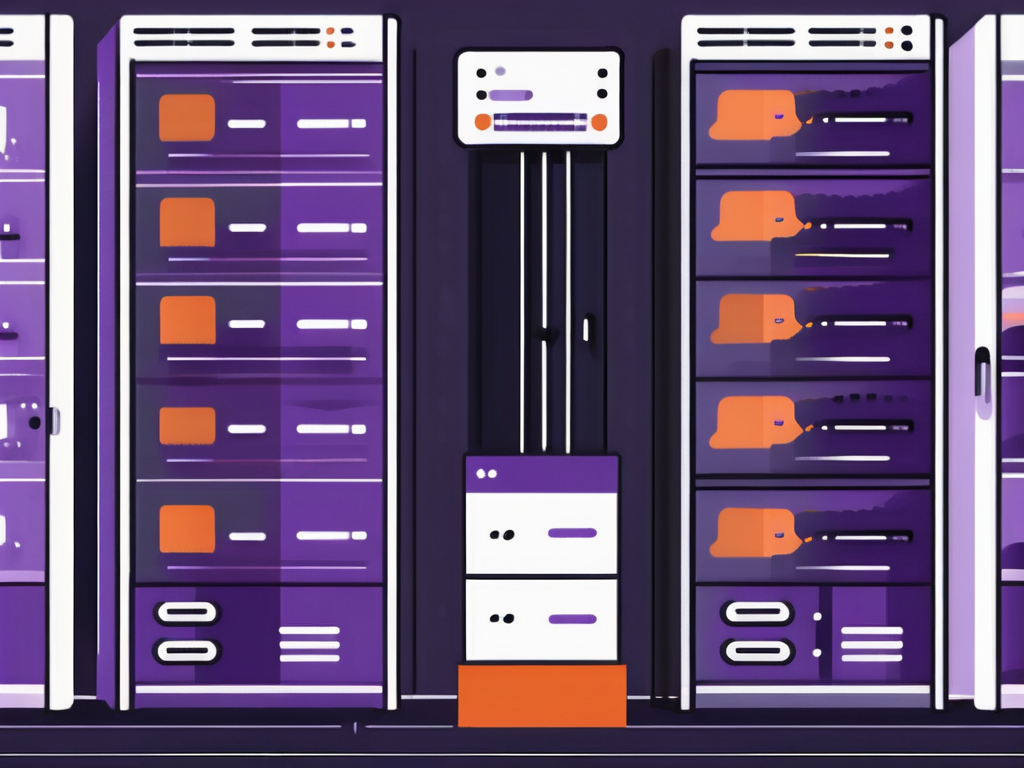Choosing the right web hosting service is crucial for the success of your website. It affects not only the performance and reliability of your site but also the scalability and security as your online presence grows.
Let’s find out what are the factors that you need to consider when choosing a hosting service.
This article will guide you through:
- Factors to think about when deciding on a web hosting service
- Your hosting requirements
- Why it is important to choose a reliable hosting provider
3 KEY Factors to Consider Before You Choose the Right Hosting Service
When choosing a web hosting service, it’s essential to look beyond the basic features and consider the following key factors that can make a significant difference to your website’s performance.
Web hosting services play a crucial role in the success of your online presence. Let’s delve deeper into some key features to consider when selecting a web hosting service.
Factor 1: Uptime Guarantee
Downtime can be frustrating and costly. Look for a web hosting service that provides a high uptime guarantee, ensuring that your website remains accessible to visitors at all times. A 99.9% uptime guarantee is an industry standard. A reliable hosting provider will have robust infrastructure and backup systems in place to minimize downtime and ensure seamless operation of your website.
Factor 2: Bandwidth and Storage
Ensure that the hosting service offers sufficient bandwidth to accommodate your expected website traffic. Additionally, consider your storage needs, including media files, databases, and email accounts. Opt for a hosting plan that provides scalable options to meet your growing requirements. A good web host will offer flexible bandwidth and storage options, allowing you to easily upgrade your resources as your website grows and attracts more visitors.
Factor 3: Security Measures
The security of your website and customer data should be a top priority. Look for a web host that offers secure server environments, firewalls, regular malware scans, and backup options. Additionally, check if they provide SSL certificates for secure online transactions. A reputable hosting provider will prioritize security measures to protect your website from cyber threats and ensure the safety of sensitive information shared on your site.
Pricing and Value for Money
Understanding the pricing structures and hidden costs associated with web hosting is crucial to make an informed decision and avoid any surprises down the line.
Understanding Pricing Structures
Web hosting can be purchased on a monthly or yearly basis. Annual plans generally offer discounts, but it’s vital to note any conditions or price increases after the initial term. Compare different hosting providers and their pricing structures to find the best value for your money.
Additionally, some providers offer scalable pricing based on your website’s traffic and resource usage. This pay-as-you-grow model can be beneficial for businesses experiencing fluctuating levels of online activity, ensuring you only pay for what you need. A typical price range for different web hosting services is:
- Shared Hosting: Prices typically range from $2 to $15 per month.
- VPS (Virtual Private Server) Hosting: Prices for VPS hosting can range from $20 to $100 per month.
- Dedicated Hosting: This type of hosting can cost anywhere from $80 to over $300 per month.
- Cloud Hosting: CCosts for cloud hosting can vary widely but typically start around $10 per month and can go up depending on resource usage and traffic.
Hidden Costs to Watch Out For
Some hosting providers may lure you in with low introductory prices but charge additional fees for essential features. Be wary of these hidden costs, such as:
- Domain registration
- SSL certificates
- Technical support.
Read the terms and conditions carefully to avoid surprises on your invoice.
Moreover, keep an eye out for renewal prices, as some providers offer significant discounts for the first term but revert to higher rates upon renewal. Understanding the full cost implications over time can help you make a more informed decision when selecting a web hosting provider.
Assessing Your Hosting Requirements
Before diving into the world of web hosting, it’s crucial to evaluate your website’s requirements and project future growth. This will help you choose a hosting service that caters to your specific needs.

When considering your hosting needs, it’s essential to delve deeper into the technical aspects of your website. Factors you should consider are:
- Content management system (CMS) you are using
- Number of databases required
- Level of security needed should all be taken into account.
Understanding these elements will enable you to select a hosting provider that offers the necessary features and support for your website.
Evaluating Your Website’s Requirements
Start by analyzing your website’s current traffic and resource usage. How many visitors does your website receive daily? What are your storage and bandwidth needs? These factors will determine the type of hosting service that suits your website best.
Additionally, consider the geographic location of your target audience. Choosing a hosting provider with servers closer to your audience can improve website loading speeds and overall performance. This is especially important for websites that cater to a specific region or have a global reach.
Projecting Future Growth
Don’t just think about your website’s current needs; consider its future growth as well. Are you expecting an increase in traffic? Will you be adding new features or expanding your online presence? Choosing a scalable hosting solution ensures that your website can handle future growth without any hiccups.
Furthermore, think about the level of technical support you may require as your website grows. A hosting provider that offers 24/7 customer support, regular backups, and security measures can help safeguard your website against potential issues and ensure smooth operation as you expand.
Types of Web Hosting Services
Web hosting services come in various types, each catering to different needs and budgets. Understanding these options will help you make an informed decision.
Let’s delve deeper into the world of web hosting to explore additional options beyond the commonly known shared, VPS, and dedicated server hosting.
Shared Hosting
Shared hosting is the most affordable and popular type of hosting. In this setup, multiple websites share resources on a single server. While it’s budget-friendly, shared hosting may result in slower page-loading times during peak traffic periods.
Virtual Private Server (VPS) Hosting
VPS hosting offers a middle ground between shared and dedicated server hosting. It provides better performance and security by partitioning a physical server into multiple virtual servers. Each VPS operates independently, ensuring that resources are not shared among websites.
Dedicated Server Hosting
If you have a high-traffic website or require extensive customization options, dedicated server hosting is the way to go. With dedicated hosting, you have full control over a physical server solely dedicated to your website. This option offers maximum performance and flexibility but comes at a higher cost.
Cloud Hosting
Cloud hosting is a scalable and flexible solution that uses multiple virtual servers to host websites. This type of hosting offers high reliability and performance by spreading resources across various interconnected servers. With cloud hosting, you only pay for the resources you use, making it a cost-effective option for websites with fluctuating traffic levels.
Importance of Reliable Web Hosting
Having a strong online presence is crucial for businesses and individuals alike. A reliable web hosting service plays a key role in ensuring that your website is up and running smoothly.
Choosing a reliable web hosting service is crucial for several reasons:
- Ensures that your website is consistently accessible to visitors
- Minimizes downtime
- Maximizes user experience.
An unreliable hosting service can result in frustrated visitors and potential loss of business.
A reliable web hosting service provides adequate security measures to protect your website and data from cyber threats. With the increasing incidence of hacking and data breaches, it’s essential to choose a host that prioritizes security.
Secure Your Online Presence and Partner with a Reliable Hosting Provider
Choosing the right web hosting service is a critical decision that can impact your website’s performance and ultimately, your online success. Take the time to understand your requirements, evaluate your options, and consider the key factors discussed in this article.
Remember, a reliable web hosting service is more than just a landlord for your digital home – it’s a partner that can help you unlock your online potential.
